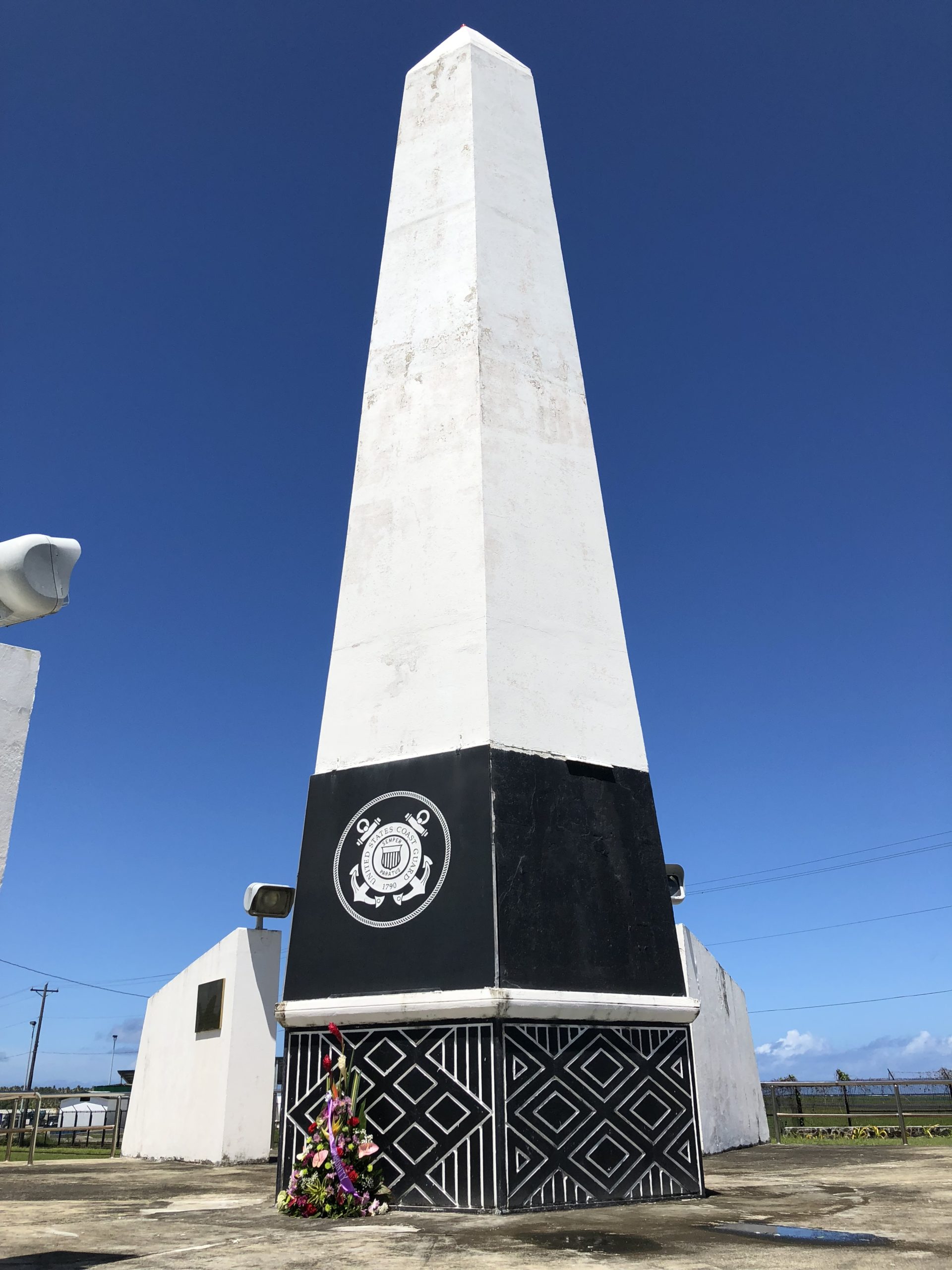10/13 Pago Pago, American Samoa (2)
>> My name is Suaka Shuster. I was born in the village of Pago Pago and born in the hospital, the naval hospital, that we had in Mauna Loa. That’s where I was born. I … What happened is you wanted to me to say?
>> American Samoa, you said, what everybody need to know about American Samoa.
>> Well, American Samoa is very unique because they don’t have to join the service because of the population that we have, we don’t have to go out and actually volunteer to go, be told that at that time. So I got registered, or when I went to the United States, I registered to vote. Everybody goes over there that’s 18 years old has to register, so I didn’t know what it’s for until I got a letter from them that they drafted me in the army, so I went in to see them and see what all this about. They said why you drafted in the military. I said, “Oh, yeah, [INAUDIBLE],” and then I said, “Well, can I choose where I go?” He said, “Yes, I can choose,” so I choose to go in the Air Force in 1952, so I served the Air Force for 4 years.
>> Why did you choose to go to the Air Force because Air Force was new at the time?
>> It’s new, and as a I kid, I was always excited and wanted to be a pilot, but unfortunately, we didn’t have that. You see here in Samoa at the time, you learn how to become a pilot, so that was [INAUDIBLE]. I want to serve the Air Force because I was interested in flying, so they send me to school to Texas in Amarillo for [INAUDIBLE] almost 4 years to become a member of a flight crew of an airplane, and it happened to be a B-47 bomber that carries an atomic bomb. They told me [INAUDIBLE] know if I like this because I don’t want [INAUDIBLE], but I found out it was just a safety precaution because of the enemy, and we do have to do it. We have to do it. A lot of talking [INAUDIBLE], so I joined for 4 years in regular military service as a flight engineer for a B-47 bomber. The crew members, there were three of … four of us: the pilot, the copilot, the navigator and the flight engineer. That’s all the people you can fit in the airplane, and the seat I was on, I was sitting in the air with an atomic bomb, right in the back of me, and I hope every day that the alert to fly that we don’t have to use this thing because I know that’s wrong, killing people, and fortunate enough, we never had to drop the atomic bomb. The time before when it happened, the same outfit that I was in [INAUDIBLE] a bombing when we took it to Japan, two places where they dropped the bomb, and they killed a lot of people, and I don’t want to be … have that experience all my life. That’s all I want to share with you.
>> What do you remember about … How many flights did you take, and what do you remember about Korea?
>> For … I never landed in Korea, never landed. I was always in the air. I’d fly from California through Okinawa, and then we were in the air all the time.
>> So you were in Japan, stationed in Japan?
>> Yeah, in Okinawa.
>> On Okinawa?
>> And then we were stationed in … We flew to different places all the time, so England or a station, permanent stations, Riverside, California, and they’d evacuate us and send us to different places, and when there’s nothing else to do, then we’d round the United States, body of the United States. Those were our jobs that we …
>> Have you have been back to Korea?
>> No.
>> What do you know about it, and what does it make you feel as a Korean War veteran?
>> I feel that I’ve done the job, that it’s for the safety of the people, not to go and kill the people within there, but just to put them in safety. That’s my feeling.
>> So you started out by saying that American Samoans didn’t need to …
>> Didn’t need to.
>> … volunteer, but you went, and many people went. What does it make you feel as a Samoan.
>> I feel proud to have done someone is going out to sacrifice his life for other people.
>> Yeah. You should be very proud.
>> It’s a small place, and there’s a few of us, and we’re eager to join the Army and the Air Force and the Navy and sacrifice, to help others [INAUDIBLE].
>> I think you may be one of the few remaining Korean War veterans on this island.
>> Yes, I am one of the [INAUDIBLE].
>> Yes, yes.
>> I’m still here.
>> Yes, we’re here to honor you today.
>> Yes.
>> Yes, later the Lieutenant Governor and …
